
Changes in credit reporting and what it means for homebuyers

What’s the difference between Fannie Mae and Freddie Mac?

Housing market trends and relocation impact

An investor’s guide to marketplace lending

What is a CLO?

Beyond Mars, AeroVironment’s earthly expansion fueled by U.S. Bank

ABL mythbusters: The truth about asset-based lending

Collateral options for ABL: What’s eligible, what’s not?

When small companies buy big: The potential of asset-based lending

Can ABL options fuel your business — and keep it running?

Maximizing your infrastructure finance project with a full suite trustee and agent

How to maximise your infrastructure finance project

Evaluating interest rate risk creating risk management strategy

Authenticating cardholder data reduce e-commerce fraud

Avoiding the pitfalls of warehouse lending

Webinar: Approaching international payment strategies in today’s unpredictable markets.

Managing the rising costs of payment acceptance with service fees

Increase working capital with Commercial Card Optimization

The surprising truth about corporate cards

Tech lifecycle refresh: A tale of two philosophies

Why other lenders may be reaching out to your employees

A checklist for starting a mobility program review

High-cost housing and down payment options in relocation

4 benefits of independent loan agents

At your service: outsourcing loan agency work

Middle-market direct lending: Obstacles and opportunities

Crypto + Relo: Mobility industry impacts

For today's relocating home buyers, time and money are everything

Streamline operations with all-in-one small business financial support

Opening a business on a budget during COVID-19

How to fund your business without using 401(k) savings

Costs to consider when starting a business

How to get started creating your business plan

How to establish your business credit score

Using merchant technology manage limited staffing

Business credit card 101

What kind of credit card does my small business need?

Do I need a credit card for my small business?

How jumbo loans can help home buyers and your builder business

How a small business is moving forward during COVID-19

Prioritizing payroll during the COVID-19 pandemic

When to consider switching banks for your business

5 tips to help you land a small business loan

How to accept credit cards online

Investing in capital expenditures: What to discuss with key partners

Should rising interest rates change your financial priorities?

Good debt vs. bad debt: Know the difference

How do interest rates affect investments?

Student checklist: Preparing for college
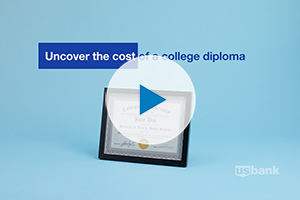
Webinar: Uncover the cost: College diploma

The A to Z’s of college loan terms

Co-signing 101: Applying for a loan with co-borrower

Practical money skills and financial tips for college students

How to build credit as a student

How I did it: Paid off student loans

Personal loans first-timer's guide: 7 questions to ask

What’s your financial IQ? Game-night edition

How to choose the right rewards credit card for you

Things to know about the Servicemembers Civil Relief Act

Common unexpected expenses and three ways to pay for them

5 reasons why couples may have separate bank accounts

Myths vs. facts about savings account interest rates

5 tips to use your credit card wisely and steer clear of debt

Your financial aid guide: What are your options?

Is a home equity loan for college the right choice for your student

Parent checklist: Preparing for college

How to apply for federal student aid through the FAFSA

Be careful when taking out student loans

Everything you need to know about consolidating debts

5 tips to use your credit card wisely and steer clear of debt

5 steps to selecting your first credit card

How to use debt to build wealth

What’s a subordination agreement, and why does it matter?

Understanding the true cost of borrowing: What is amortization, and why does it matter?

7 steps to keep your personal and business finances separate

Know your debt-to-income ratio

How to use credit cards wisely for a vacation budget

Your quick guide to loans and obtaining credit

Dear Money Mentor: How do I begin paying off credit card debt?

Dear Money Mentor: What is cash-out refinancing and is it right for you?

Overcoming high interest rates: Getting your homeownership goals back on track

Is it cheaper to build or buy a house

For today's homebuyers, time and money are everything

Crypto + Homebuying: Impacts on the real estate market

Should you buy a house that’s still under construction?

How I did it: Bought my dream home using equity

Buying a home Q&A: What made three homeowners fall in love with their new home

Saving for a down payment: Where should I keep my money?

What are conforming loan limits and why are they increasing

How I did it: Bought a home without a 20 percent down payment

The lowdown on 6 myths about buying a home

Home buying myths: Realities of owning a home

Money Moments: Tips for selling your home

Money Moments: How to finance a home addition

How I did it: My house remodel

Are professional movers worth the cost?

First-time homebuyer’s guide to getting a mortgage

Dear Money Mentor: When should I refinance a mortgage?

Quiz: How prepared are you to buy a home?

What is a home equity line of credit (HELOC) and what can it be used for?

How you can take advantage of low mortgage rates

What is an escrow account? Do I have one?

Is it the right time to refinance your mortgage?

What to know when buying a home with your significant other

What is refinancing a mortgage?

These small home improvement projects offer big returns on investment

Should you get a home equity loan or a home equity line of credit?
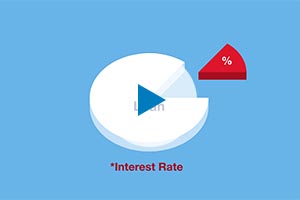
Webinar: Mortgage basics: What’s the difference between interest rate and annual percentage rate?
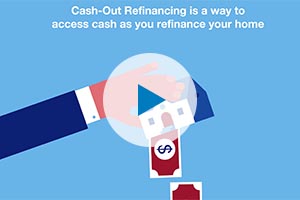
Webinar: Mortgage basics: What is refinancing, and is it right for you?

Webinar: Mortgage basics: Prequalification or pre-approval – What do I need?

Webinar: Mortgage basics: How much house can you afford?

Webinar: Mortgage basics: How does your credit score impact the homebuying experience?
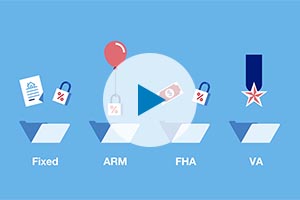
Webinar: Mortgage basics: Finding the right home loan for you

Webinar: Mortgage basics: Buying or renting – What’s right for you?
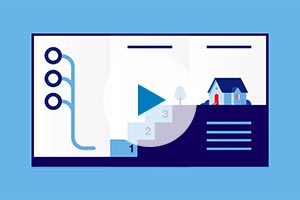
Webinar: Mortgage basics: 3 Key steps in the homebuying process

Is a home equity line of credit (HELOC) right for you?

How to use your home equity to finance home improvements

How do I prequalify for a mortgage?

Can you take advantage of the dead equity in your home?

8 steps to take before you buy a home

6 questions to ask before buying a new home

4 questions to ask before you buy an investment property

10 uses for a home equity loan

What applying for store credit card on impulse could mean

How to spot a credit repair scam

6 essential credit report terms to know

5 unique ways to take your credit card benefits further

Myth vs. truth: What affects your credit score?

Test your loan savvy

Credit: Do you understand it?

Should you give your child a college credit card?

What types of credit scores qualify for a mortgage?
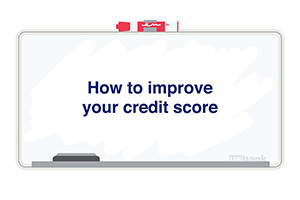
How to improve your credit score

How I did it: Deciding whether to buy an RV

Take the stress out of buying your teen a car

Questions to ask before buying a car

What you should know about buying a car

How to choose the best car loan for you

